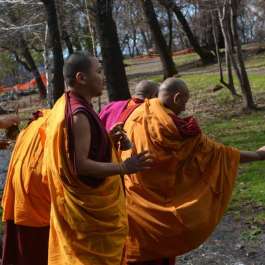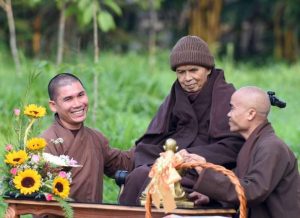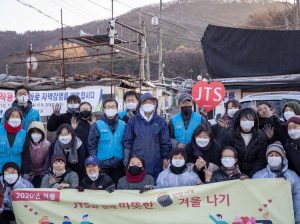
The Tibetan Nuns Project (TNP), a US-registered charity based in Seattle and in the Kangra District of Himachal Pradesh, India, has announced that an ambitious initiative to expand and improve the debating courtyard for the Buddhist nuns of Dolma Ling Nunnery and Institute of Buddhist Dialectics has been completed.*
According to a report from TNP, the expanded courtyard offers 60 per cent more covered area—an additional 2,500 square feet (232 square meters)—providing shade and shelter for the nuns during their daily monastic debate practice.
“The nuns are already using the courtyard for their daily debates. Monastic debate is of critical importance in traditional Tibetan Buddhist learning. Through debate, nuns test and consolidate their classroom learning. Without training and practice in debate they are unable to attain higher academic degrees such as the geshema degree,”* the TNP said in an announcement shared with BDG. “This big project was kindly funded by Tibetan Nuns Project donors. We are extremely grateful to the donors and the entire team for their hard work and dedication, which has resulted in this elegant structure, totally in keeping with the original design.”
Inaugurated by His Holiness the Dalai Lama in 2005, Dolma Ling Nunnery and Institute of Buddhist Dialectics is located in Kangra Valley near Dharamsala in northern India. The nunnery was the first institute dedicated to higher Buddhist education for Tibetan Buddhist nuns from all traditions, and is fully funded by the TNP.

Some 260 nuns are fully engaged in study, practice, and nunnery work at Dolma Ling, as well as organizing self-sufficiency projects, such as tofu-making and producing handicrafts. In 2013, 10 of the Dolma Ling nuns made history when they took part in the first-year geshema examinations.
“Over the years, the number of nuns at this large non-sectarian nunnery has increased to over 260 nuns,” said the TNP. “The existing debate courtyard was too small and at least two-thirds of the paved area was open to the elements, so many nuns were forced to debate in the open under the hot sun. When it rained, as it does throughout the summer monsoon season, the unprotected space was unusable.”

Improvement works for the courtyard began in January 2022, with expansion and construction taking place in two phases. The completed project now includes steel roofing and enclosed areas to protect the upper courtyard from rain, and with sliding windows for ventilation during hot weather. Additional stone seating has also been added. The second phase has seen the addition of an extended roof over the expanded debating area.
“Dolma Ling is unique because it offers a 17-year curriculum of traditional Buddhist philosophy and debate, as well as modern courses in Tibetan language, English, basic mathematics, science, and computer skills,” the TNP explained. “Training in Buddhist debate, the extensively practiced method for examining philosophical, moral and doctrinal issues, is an essential part of monastic education in the Tibetan tradition. Until recently, Tibetan nuns did not have the opportunity to fully study and practice Tibetan Buddhist debate, a process that uses logical enquiry to build a deeper understanding of Buddhist philosophy. The Tibetan Nuns Project has worked hard to make this opportunity available to nuns by including debate as a core part of their education, which enables them to extend their use of logic and deepen their understanding of the arguments asserted in the texts they are studying.”
The Tibetan Nuns Project provides education and humanitarian aid to refugee nuns from Tibet and Himalayan regions of India. Established under the auspices of the Tibetan Women’s Association and the Department of Religion and Culture of the Central Tibetan Administration, the TNP supports hundreds of nuns from all Tibetan Buddhist lineages and seven nunneries. Many of the nuns are refugees from Tibet, but the organization also reaches out to the Himalayan border areas of India, where women and girls have little access to education and religious training.
For information on ways to support the work of the Tibetan Nuns Project, click here
* The geshema degree is the highest academic degree in Gelugpa tradition. Like the geshe degree for male monastics, it is roughly equivalent to a PhD in Tibetan Buddhist studies. The rigorous exams take four years to complete, with one set held each year.
See more
Tibetan Nuns Project
Dolma Ling Nunnery and Institute (Tibetan Nuns Project)
Related news reports from BDG
Tibetan Nuns Project Announces 10 New Geshema Graduates at Ceremony in Bodh Gaya
UPDATE: Tibetan Nuns Project Offers Progress Report on Dorjee Zong Buddhist Nunnery in Ladakh
Geshema Examinations for Tibetan Buddhist Nuns Begin in Dharamsala
Tibetan Nuns Project Leads Transformation at Dorjee Zong Buddhist Nunnery in Ladakh
Tibetan Nuns Project Announces Fundraising Success for Dolma Ling Nunnery
Tibetan Nuns Project Raises US$16,000 for the Higher Education of Buddhist Nuns
Bhutan Nuns Foundation Announces Opening of the Training & Resource Center for Buddhist Nuns
51 Tibetan Buddhist Nuns Take Geshema Exams
In Historic First, Two Tibetan Buddhist Nuns Hired to Teach Buddhist Philosophy
Dalai Lama Awards Historic Geshema Degrees to 20 Nuns
Twenty Tibetan Nuns Make History by Passing Geshema Degree
Annual Geshema Examinations Held in Dharamsala
Nuns in Dharamsala Participate in Winter Debate before the Dalai Lama
Related features from BDG
Buddhistdoor View: New Theravada Bhikkhuni Ordinations a Cause for Joy
Gelongma Dompa (dgeslongma’i sdom pa): The Blessing of Bhikshuni Ordination in Bhutan
My Journey Toward Sowa Rigpa – The Science of Healing
Ten Years of Empowering Female Monastics: Bhutan Nuns Foundation Extends Reach with New Training Center
Khenmo Konchog Nyima Drolma: Serving the Dharma and Sowing the Seeds of Monasticism in the West
Exclusive Interview: The 17th Karmapa and the Buddhist Nuns of the Tibetan tradition
Beauty and the Feminine Buddhist Spirit in Spiti














